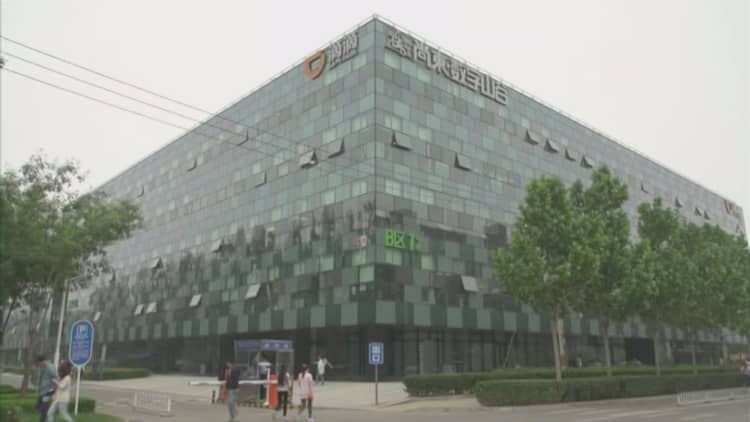Didi Chuxing, Uber's China rival, has closed a financing round worth $7.3 billion, including an investment from Apple, as the taxi app battle in the world's second-largest economy continues to heat up.
The total round was formed from a $4.5 billion equity raise from Apple, which invested $1 billion into Didi, $600 million from China Life, and an undisclosed amount from Ant Financial, the affiliate of Alibaba that runs payment solution Alipay. Existing shareholders, including internet giants Tencent and Alibaba, were also involved in the round.
And the remainder of the money came from a syndicated loan worth $2.5 billion arranged by China Merchants Bank. And China life added a long-term debt investment of around $300 million.
Didi said it would use the money to upgrade technology for big data research and operations as well as investing in improving rider and driver experience and exploring new business lines and opportunities.
"We are greatly inspired by strong support from investors worldwide who have demonstrated full confidence in Didi's potential. In just four years, Didi has created a firm lead in China's mobile transportation sector," Cheng Wei, CEO and founder of Didi, said in a press release.
"With our advantages in technology, platform synergies and talented team, Didi is prepared to continue this momentum of growth."

The Chinese start-up, which was formed by the merger of the country's two biggest ride hailing apps in 2015, said it has around $10.5 billion in disposable funds. Still, rival Uber has managed to raise even more. The U.S. start-up has raised $14.11 billion in total since it was founded, according to Crunchbase, a website which tracks investments.
But Didi's latest funding round shows it is set on taking on Uber in the battle for supremacy of the Chinese market, something it has struggled to do so far. Earlier this year, Uber chief executive Travis Kalanick said the company was losing $1 billion a year in China, but told CNBC that many of the cities it operates in there will become profitable in the next couple of years.
Uber has now expanded into 60 cities in China, the company announced on Wednesday, with Chinese users completing nearly 1 million trips via the app outside of the country, China Daily reported.
The $4.5 billion equity portion of Didi's $7.3 billion round is one of the largest private equity raises. It is on par with Ant Financial's $4.5 billion funding round this year and just behind the $5 billion snagged by Uber this month.





